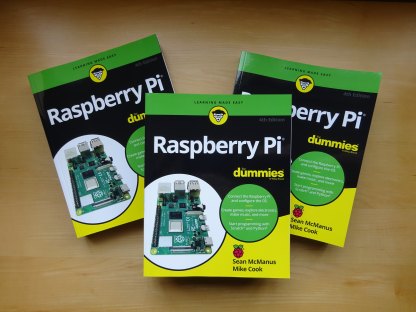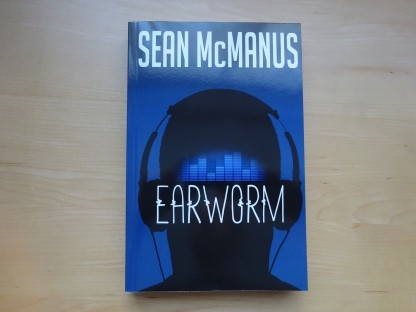
100 Top Tips: Microsoft Excel
Power up your Microsoft Excel skills with this powerful pocket-sized book of tips that will save you time and help you learn more from your spreadsheets.
29 March 2012
Last year, I heard about a competition organised by an independent theatre group that was looking for new writers. The prize was to work with a director on refining the script and then to have your play staged. A representative from the theatre company spoke to a group of writers, including me, and told us there were no preconceived ideas about what kind of play they were looking for. We should let our imaginations run free.
Recently, I saw the two winning plays and they were brilliantly staged. But they were also something of a let-down: they covered religious conflict, teen pregnancy, and knife crime. They’re difficult issues, but they’re very easy from the point of view of commissioning theatre. Nobody is going to complain if someone invests money in those kind of productions because it’s just what theatre groups are expected to do. It would have been truly daring to commission a farce, a sci-fi play, or anything else that felt a bit fresher. That would have really helped to discover new voices.
I hadn’t submitted anything for this particular competition (I didn’t have a strong enough idea, and I was working on promoting Web Design in Easy Steps, and writing iPad for the Older and Wiser at the time). Watching this play made me realise that I’m highly unlikely to ever write the kind of play that could win, though. I ended up quite pleased that I hadn’t found the time to submit an entry because I’m just not the kind of writer they’re looking for.
I’ve entered a few writing competitions over the last couple of years when publishers have been looking for someone to write stories for their characters or plot outlines. I was a close runner-up twice in competitions organised by one publisher, which is a frustrating place to be, although it’s possible I might be lucky third time around if I give it another go.
Seeing this theatre production and thinking about my recent competition entries made me question whether it’s worth entering writing competitions. The upside is that the prizes can be hugely beneficial: they can raise your profile and give you new creative opportunities to find an audience and tell it a story. If a competition prize helps you to create a new work, you’ll learn a lot along the way, usually from people with much more experience than you. Competitions are often the most approachable way to break into a new style of writing too, because they welcome all-comers.
But the downside is that you’re writing to somebody else’s agenda, and sometimes you don’t even know what that agenda is. There will nearly always be safer options for the judges to choose than your work. There might be entrants with a stronger track record, or stories that tick more boxes.
You’re also going where the competition is fiercest. There might be hundreds or thousands of writers who are writing something to the same brief as you are. When the judges are choosing from similar submissions, how can you make your work stand out? Minor differences between the submissions become hugely important, in a way that they wouldn’t in most other contexts.
Whenever you write, you’re in competition, of course. You’re vying with other writers to win an agent’s representation, a publisher’s budget, and a reader’s attention. But when you come up with your own projects, you can use your ideas and style to differentiate yourself and stand out. You might be the only person who’s writing fiction about how technology is affecting the music industry, or at least you’ll be within a select niche. When you enter formal writing competitions, you have to run with the herd.
Not all competitions are the same. Some give you a lot of freedom to shape the story to your own vision, and to take the characters in new directions. Some give you detailed feedback, which might be valuable, depending on who’s giving it. And some have prizes that, even with the odds stacked against you, are well worth the gamble. Many will push you outside your comfort zone, and teach you something about writing, purely through the experience of creating your submission. You only become a better writer by practising, and I don’t regret spending time on anything I’ve written.
Writers should remember, though, that their time is precious and they can only write one thing in any given moment. It’s easy to get seduced into entering competitions, instead of cracking chapter one of your new novel, which perhaps begins a more difficult journey.
What do you think? Are writing competitions worth the time?Labels: books, journalism, writing
Permanent link for this post | Blog Home | Website Home | Email feedback
© Sean McManus. All rights reserved.
Visit www.sean.co.uk for free chapters from Sean's coding books (including Mission Python, Scratch Programming in Easy Steps and Coder Academy) and more!

Power up your Microsoft Excel skills with this powerful pocket-sized book of tips that will save you time and help you learn more from your spreadsheets.

This book, now fully updated for Scratch 3, will take you from the basics of the Scratch language into the depths of its more advanced features. A great way to start programming.

Code a space adventure game in this Python programming book published by No Starch Press.

Discover how to make 3D games, create mazes, build a drum machine, make a game with cartoon animals and more!

Set up your Raspberry Pi, then learn how to use the Linux command line, Scratch, Python, Sonic Pi, Minecraft and electronics projects with it.

In this entertaining techno-thriller, Sean McManus takes a slice through the music industry: from the boardroom to the stage; from the studio to the record fair.